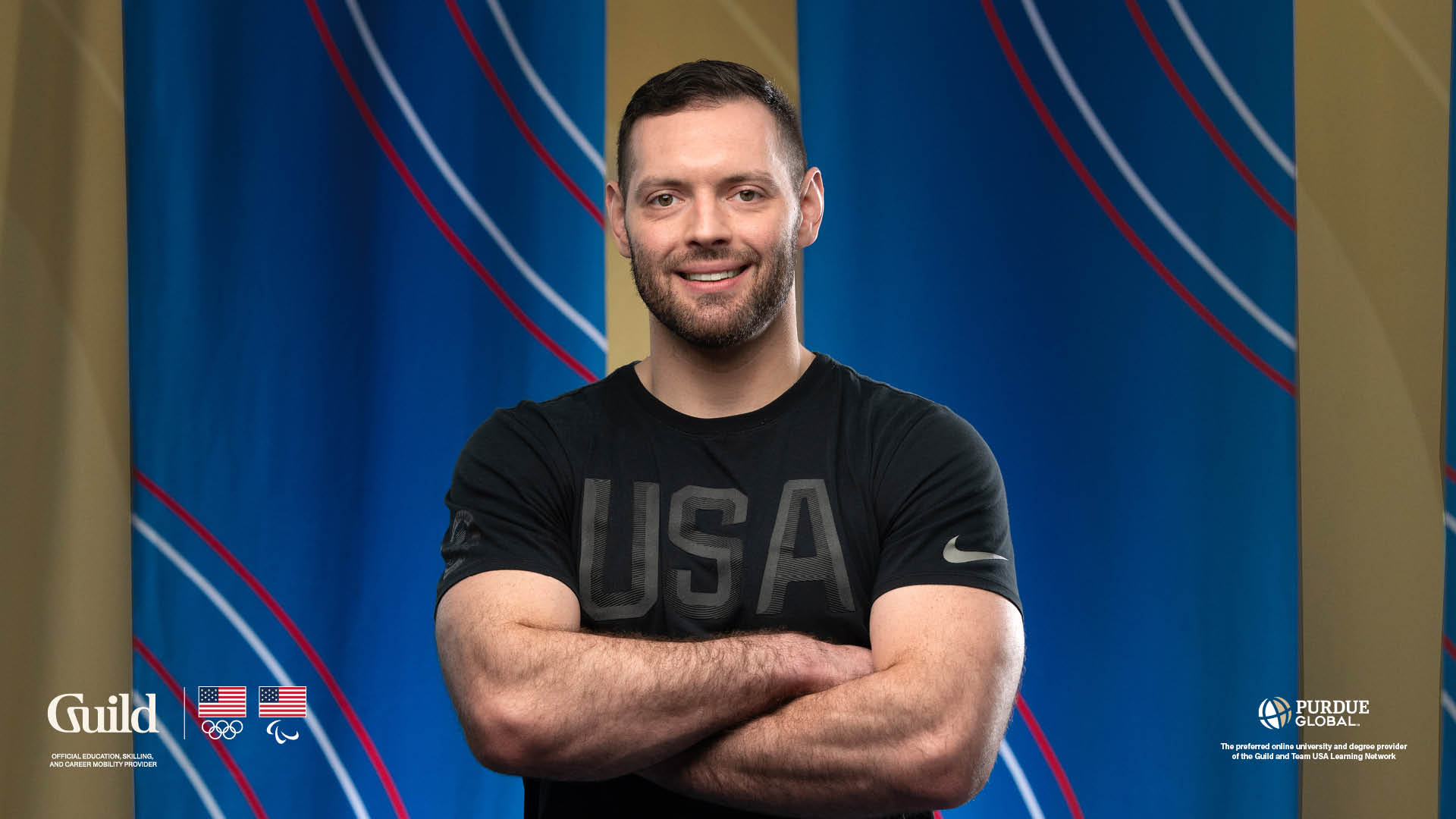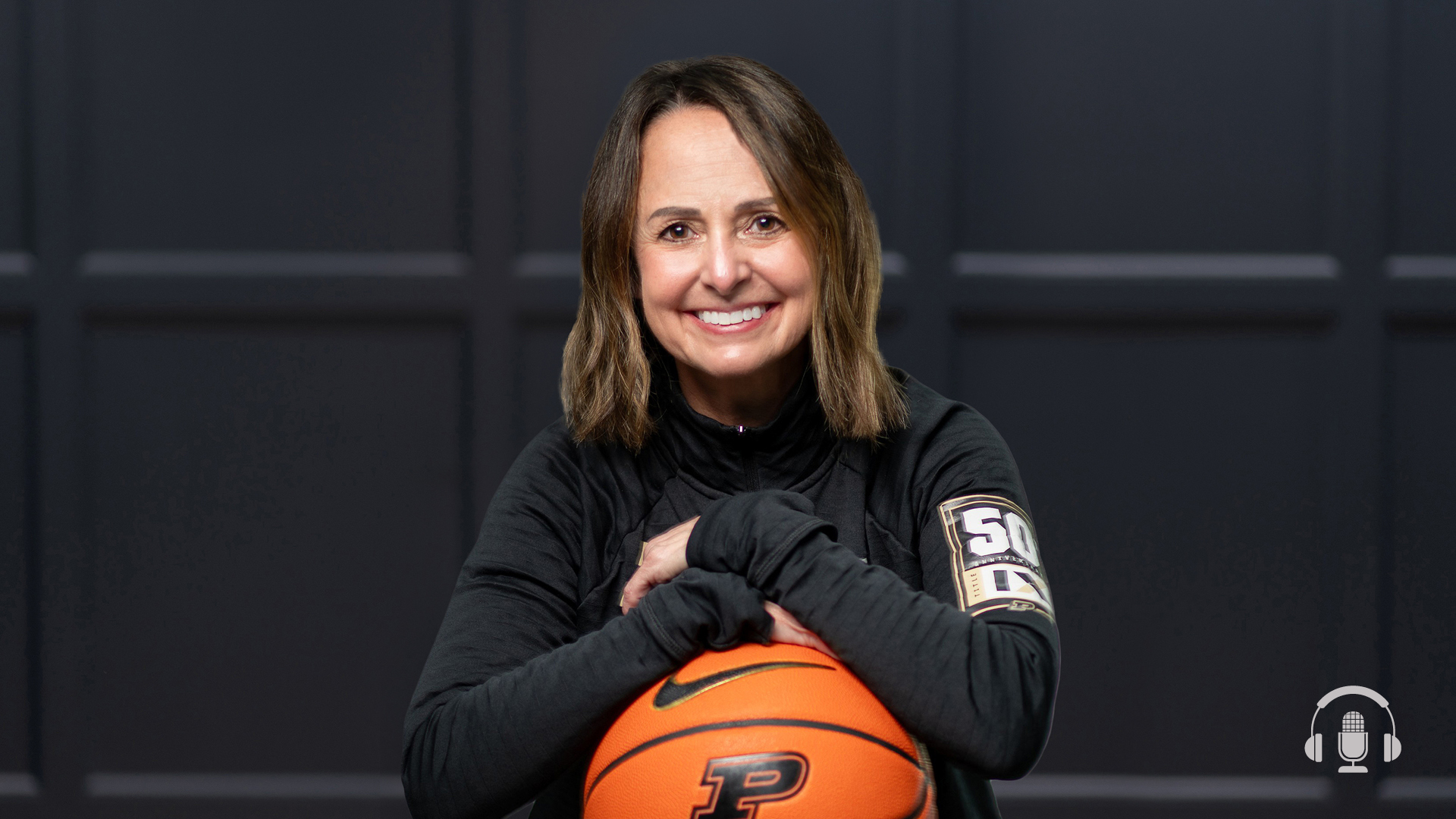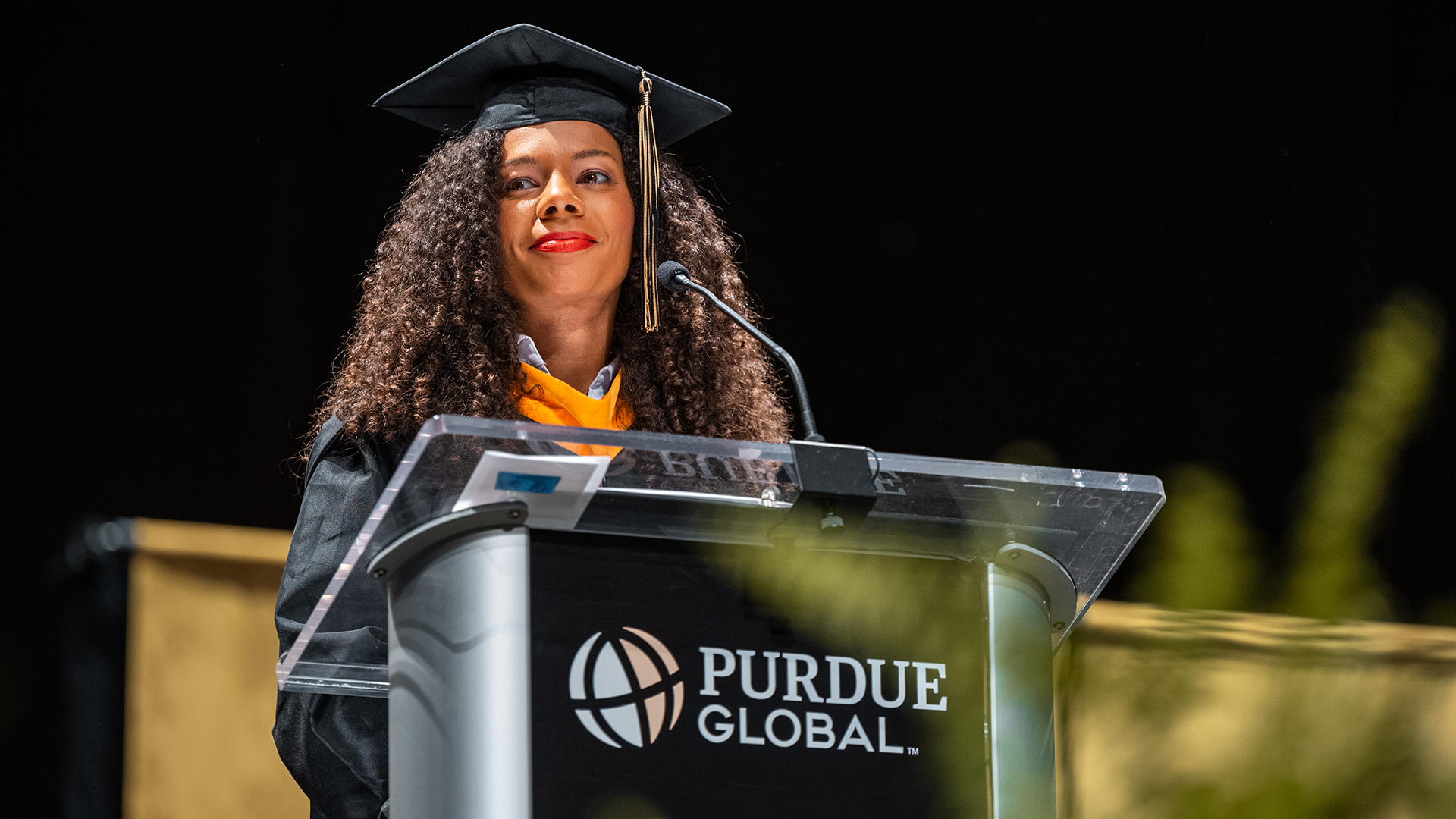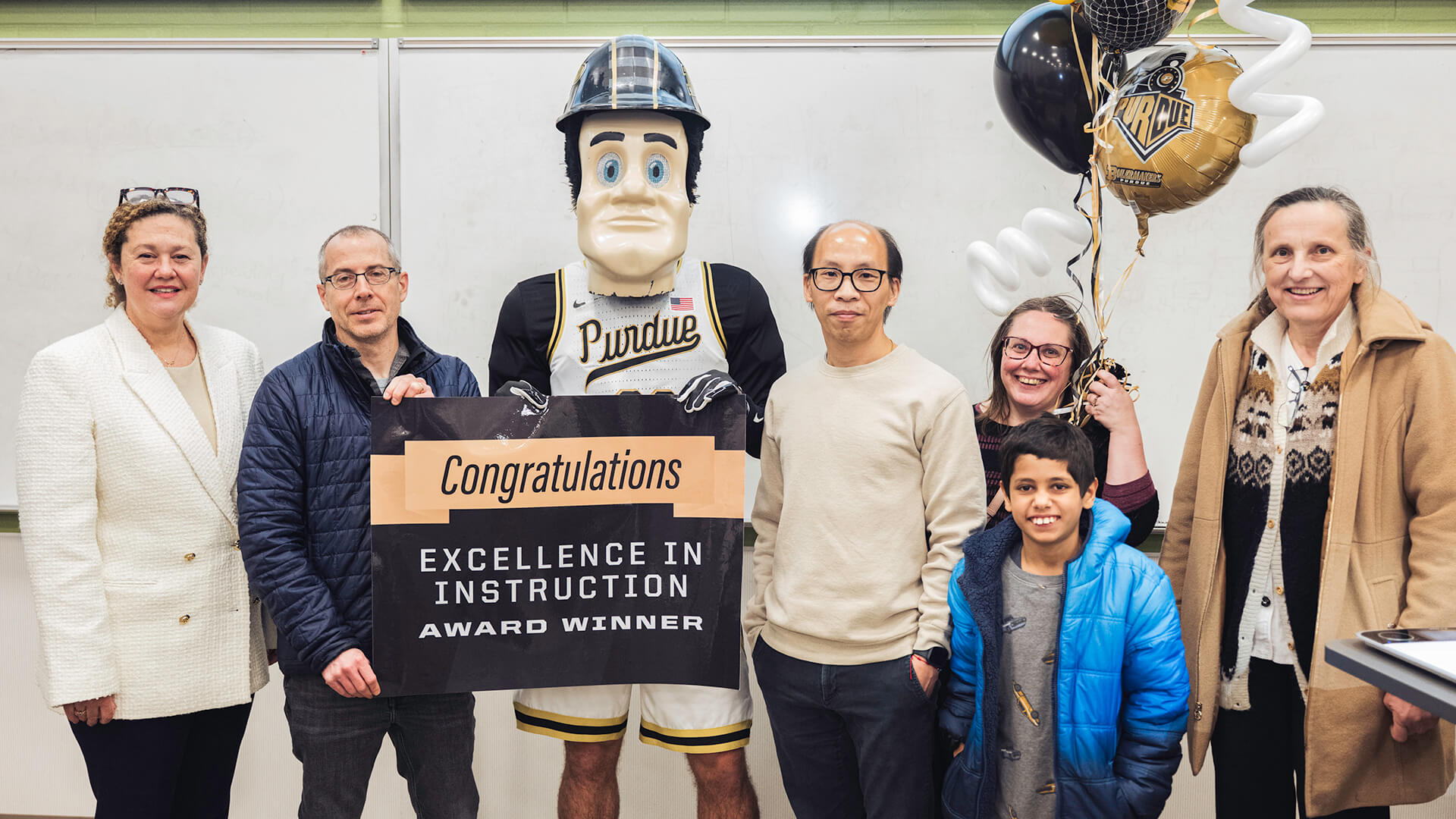A ‘forever professor’ for Purdue students in Indianapolis

Motivated by her own previous interactions with mentors, both good and bad, Katrenia Reed Hughes wants to support her students long after they graduate from Purdue University in Indianapolis. (Purdue University photo/Kelsey Lefever)
Previous experiences with mentors drive Purdue professor in Indianapolis to help her students succeed
That could mean sharing life or career advice after they graduate. It could mean staying in touch via LinkedIn and helping them make contacts that can advance their careers.
Or it could involve providing opportunities to teach or mentor the next generation of students who come through the project management education program the associate professor oversees.
However the “forever” aspect of her position takes shape, the bottom line is that Reed Hughes — known to her students as “Dr. K.” — feels a responsibility to help her students achieve long-term success. Maybe that’s because she recognizes how a teacher’s guidance helped create a path for her own upward trajectory.
Childhood lessons
Reed Hughes was raised in Wilson City, Missouri, a rural sharecropper’s village where “nobody had much, but it was still a great way to grow up,” she says.
What made it great?
For one thing, she came to understand at an early age that community is important. While playing every day with her friends from sunup to sundown, she learned how to form close personal bonds with her neighbors.
The setting also taught her valuable lessons about empathy.
The youngest of five siblings, Reed Hughes was the only child in the family whose chores didn’t include going out into the field to chop beans. She remembers watching her older siblings put on two pairs of socks and then wrap their feet with plastic bread bags to keep them dry while working in the muddy fields.
“I could tell it wasn’t easy,” she says.
Despite the poverty that surrounded her, Reed Hughes says her childhood was a happy one. However, her earliest years in school were a struggle because of what she now realizes was an undiagnosed case of attention-deficit/hyperactivity disorder (ADHD).
She excelled in math but had difficulty reading at grade level until a sixth grade teacher, Mrs. Stapleton, managed to connect with her in a way that previous teachers had not.
(My sixth grade teacher) saw something in me, and I was inspired, and she probably taught me some tools that I didn’t have and no one else really took the time to help me with. I’ve been a great student ever since then.
Katrenia Reed Hughes
Purdue organizational leadership professor in Indianapolis
“She saw something in me, and I was inspired, and she probably taught me some tools that I didn’t have and no one else really took the time to help me with,” Reed Hughes says. “I’ve been a great student ever since then.”
Such a great student, in fact, that attending college was an easy decision once making the school honor roll became a standard outcome starting that year with Mrs. Stapleton. And once Reed Hughes launched a collegiate career, she kept adding new knowledge and credentials.
She followed her high school guidance counselor’s advice and pursued a psychology degree at Missouri State University, then added a master’s and doctorate in psychology at Indiana State University and a master’s in business administration at Butler University.
As a first-generation college student, she completed that academic journey with virtually no advance preparation on what to expect about attending a university.
“My mom loved the idea that her daughter was going to college, and so did my dad, but they still didn’t really understand things like why you couldn’t come home sometimes and stuff like that. Or just even basic stuff,” Reed Hughes says. “It kind of felt like everyone else had a book that told them how to do these things, but I didn’t.”
She figured it out, though, and worked at the Purdue University Student Health Center immediately after completing a doctorate in clinical psychology (PsyD) degree. She transitioned from the field of mental health to the corporate world while completing her MBA, spending the next decade helping people and organizations effectively change human behavior to meet business goals. But many aspects of the university environment eventually beckoned her back to higher ed:
The energetic community on campus.
The ability to build personal connections with students and colleagues.
The opportunity to share knowledge and help others.
“When I left corporate, I said I was going home,” she recalls.

Building essential career tools
At Purdue, Reed Hughes found a place where her organizational leadership and coaching skills could make a meaningful difference.
She committed to improving student success and retention. And she has done the same for her co-workers — particularly those from marginalized backgrounds — by working with senior faculty to constructively mentor their junior counterparts.
But as valuable as Reed Hughes’ campus service has been, perhaps her greatest contribution has been the success of the project management program — particularly with the project management (PM) certificate curriculum that helps students build the skills necessary to fill positions that have become increasingly vital to the global economy.
A 2021 study by the Project Management Institute estimated that by 2030 approximately 102 million jobs would exist across the globe for project managers and those who possess PM skills. The study further indicated that 25 million new project managers would be necessary by 2030 to meet demand as more industries become projectized.
Demand is especially high in fields like software development and analysis, manufacturing and construction, information and publishing, and finance and insurance. Reed Hughes attributes the field’s expanded presence to businesses’ observations that projects were more likely to fail when a project manager was not present to facilitate communication between project stakeholders and generally keep things on track.
“Do they meet their outcomes? Do they meet their goals?” Reed Hughes asks. “The percentage of that is so horrible that maybe 10 years ago, people started to see, ‘Oh, project managers increase our success. And if our initiatives and our operational projects that we need to get done, if those are successful, then our business is actually more efficient.’”
Do they meet their outcomes? Do they meet their goals? The percentage of that is so horrible that maybe 10 years ago, people started to see, ‘Oh, project managers increase our success.’
Katrenia Reed Hughes
Purdue organizational leadership professor in Indianapolis
In addition to the technical tools that Reed Hughes teaches her students how to use, she also promotes skills like efficient communication, leadership, relationship building, strategic thinking and problem-solving that are essential to the success of most complex projects. Those skills are useful even if a student chooses not to seek Project Management Professional (PMP) certification.
“With the graduate-level certificate, I’ve already had several students who left the class immediately or sometime after that take the PMP exam, and they’ve all passed,” says Reed Hughes, a certified PMP herself. “And then some of them didn’t take the PMP, but they were able to go out and market their skill set. And when I say that, I mean if you go to an interview and you say you know project management and you don’t, and there’s someone in the room who does, you can make a fool of yourself. But these students, they know what they’re doing, and they know what they’re talking about, and they can go in there and speak confidently about it.”
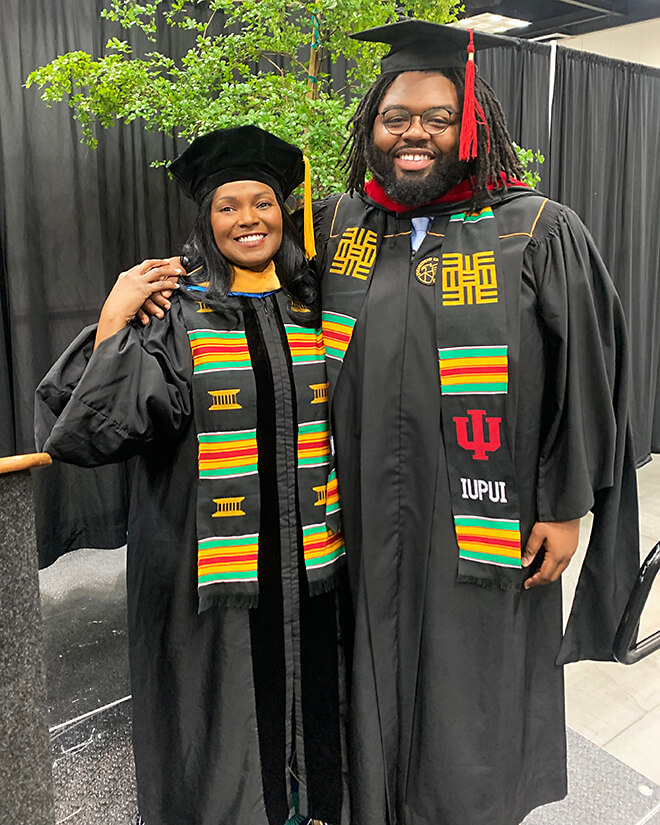
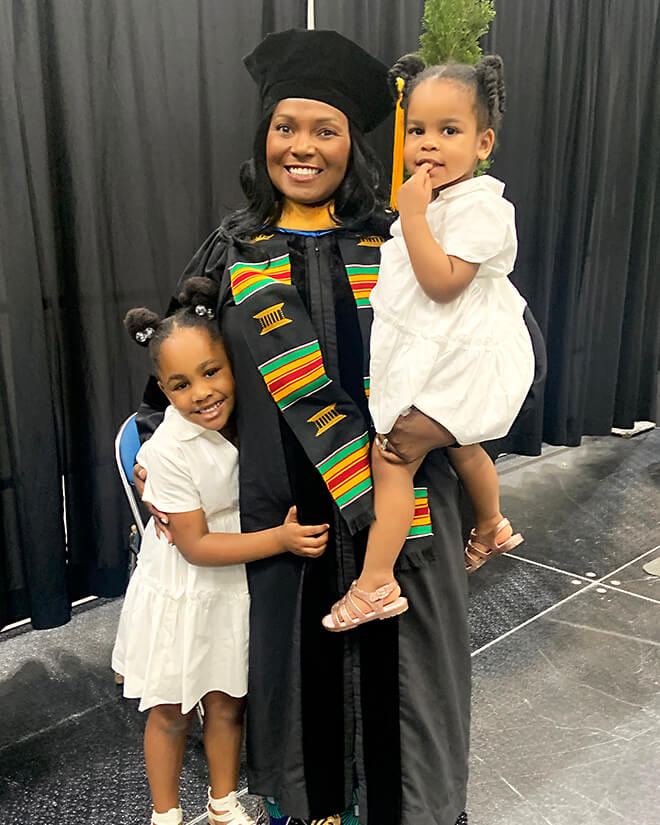
Mentorship matters
Reed Hughes’ service to her students goes far beyond the walls of the classroom. She is actively involved in multiple mentorship initiatives, including as a founding member of the Midwest Experiences in Mentoring Excellence (MEME) collaborative that started at the university level and has since gone national.
“I’m very excited because we showed that we could have an impact at a smaller level with very little money, and now we’re expanding that and taking it out and testing it within industry,” she says of MEME’s efforts to support scholars from underrepresented groups who are part of STEM faculties that teach and mentor diverse groups of students.
Effective mentorship is a cause that is close to Reed Hughes’ heart because of her own lived experiences. She benefited from positive interactions with many mentors, but also recalls being a mentee in collegiate and corporate environments where the absence of common ground contributed to strained relationships.
She understands better than most that those personal connections can make a difference for someone who simply needs guidance on how to focus their talents to achieve their goals. It’s why she mentors students — and she’s good at it, too, having won the 2023 Outstanding Graduate and Professional Student Mentor award — and it’s why she teaches job skills that should have long-term viability.
In both cases, Reed Hughes finds it energizing to support and affirm others, giving them the tools to succeed in places where their unique abilities can provide value.
“I tell my students you can do any project management job,” she says. “You’re following a tried-and-true process that’s proven to be successful.”
